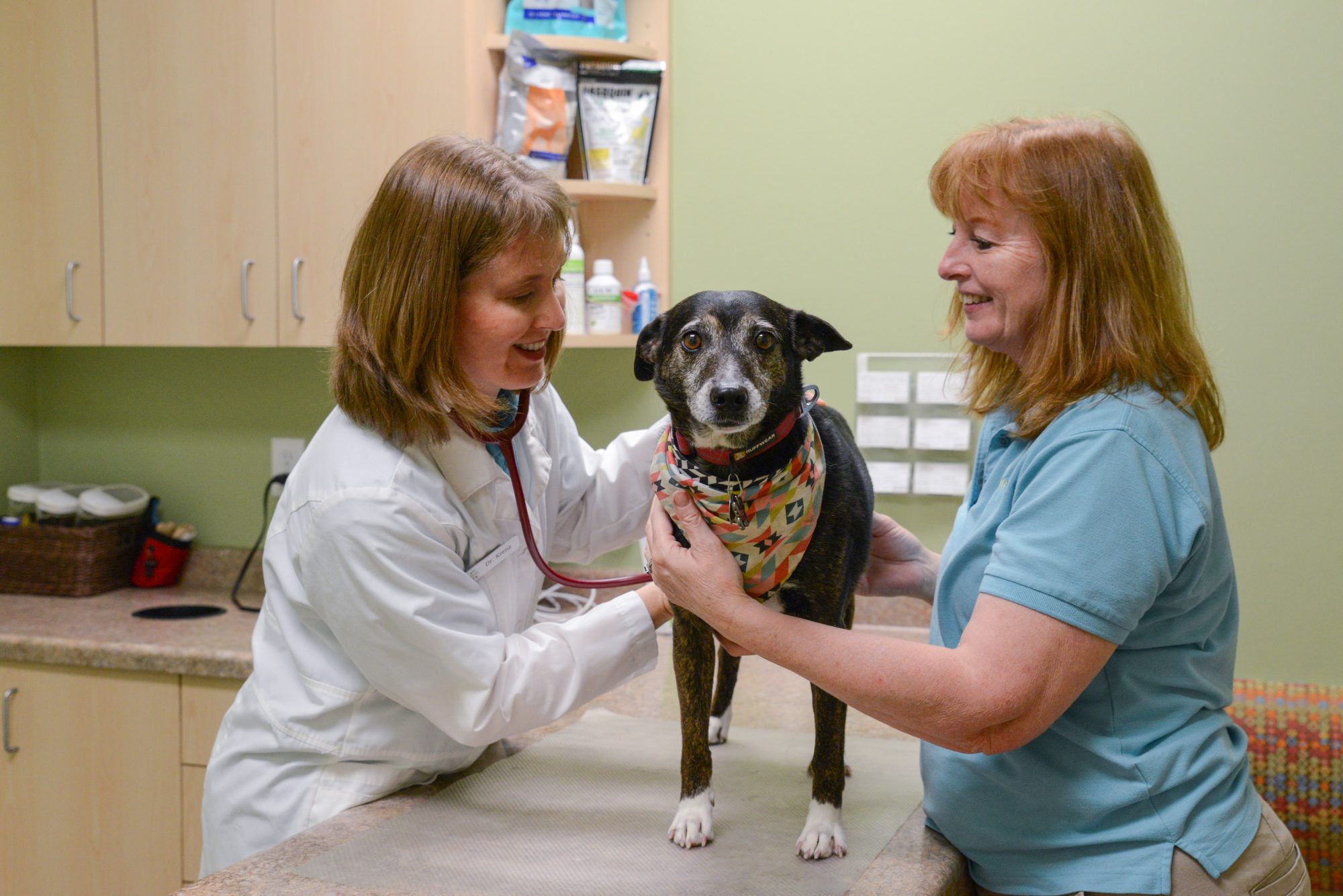Add Years to Your Pet’s Life
By Dr. Maria Krenz, DVM – ZimmVet-763-856-4848

Advances in medical technology and preventative care are allowing pets to live longer, happier lives. It is not uncommon for cats to reach 20 plus years of age, and small dogs to live 18-20 years. More often pets are seen as a family member and people are looking for ways to spend as much time as possible with their beloved pets. Owners can influence their pet’s lifespan and quality of life with a few simple care guidelines.
Ideal Weight-Add 2 Years of Pet Life
Extensive research has been performed to evaluate the effects of obesity on lifespan and medical conditions, such as arthritis. Data shows that an ideal weight pet will live on average two years longer as compared to its obese littermate. Since pet owner’s control their cat or dog’s feedings, lifespan is directly influenced by an owner’s ability to regulate calories and provide adequate exercise.
There are many resources available for pet owners to help their pet’s lose weight. The first step is to schedule an appointment with your veterinarian to set a goal weight for your pet, calculate their calories needed for safe weight loss and create a weight loss plan.
There are many tools available to help pet owners achieve their pet’s weight loss goals. The PortionPro™ Rx Pet Feeder is an automatic feeder tailored to each individual pet in the household. It is available on ZimmVet’s online store ZimmVet.com click on Online Pet Pharmacy.
Regular Home and Professional dental Care-Add 4 years of Pet Life
Regular oral care and keeping a pet’s mouth healthy has been documented to add 4 years to their lifespan. Dental disease causes more than just oral pain and infection; it also impacts your pet’s organs, such as heart, liver and kidneys. Daily home dental care with products approved by the VOHC (Veterinary Oral health Council), will help keep your pet’s mouth healthy. This can include daily brushing, using a chew or water additive. Besides home care, pets also need professional dental cleanings, just like humans who go to the dentist. Your veterinarian will examine your pet’s mouth during their annual or biannual exam and indicate when a dental cleaning is necessary.
Regular Veterinary Preventative Care
Your veterinarian is available for more than just taking care of sick pets, he or she is your pet’s partner in preventative medicine. Yearly exams for pets under 7 years of age and twice yearly exams for pets over 7 years of age can identify problems before they become severe. Part of the wellness visit should include bloodwork to screen major organ functions such as your pet’s liver and kidneys. Any program to keep your pet healthy will include administering appropriate vaccinations, deworming and using products to prevent common illnesses such as Lyme disease.
Disclaimer: This written content is meant to be educational and is not medical advice. Always consult a veterinarian about medical advice for your pet.


